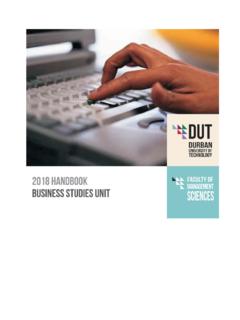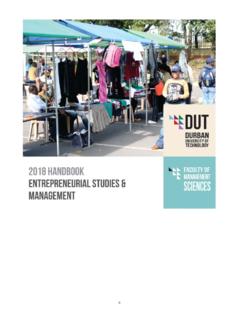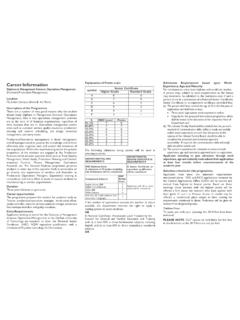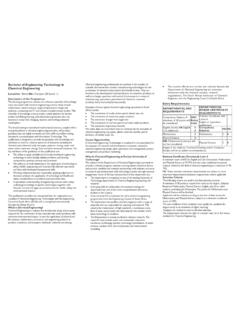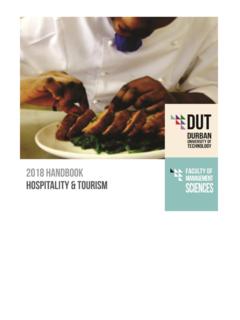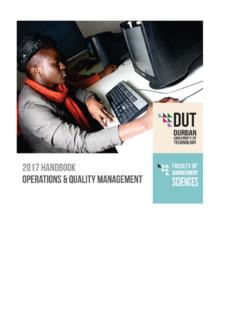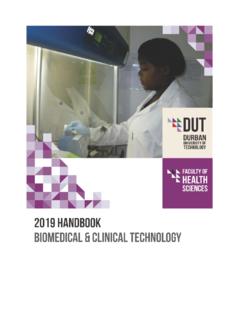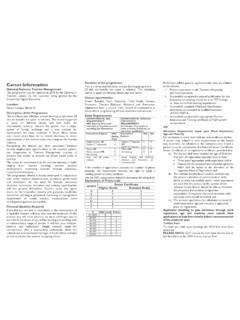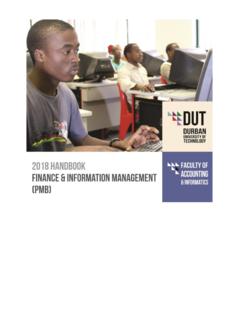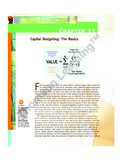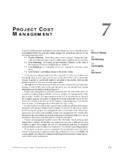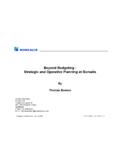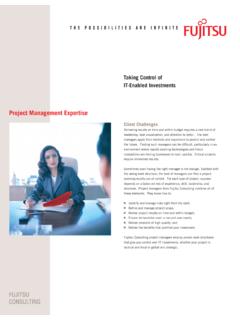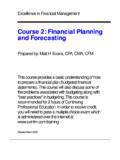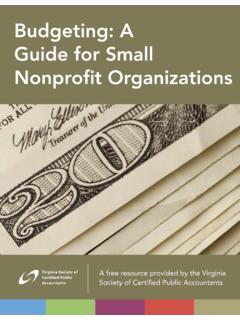Transcription of Management Development Programme
1 N Q F L e v e l 6 Participant ProfileShort Learning Programme StructureObjectivesEvaluation of ParticipantsEntrance CriteriaParticipants are typically from Middle to Senior Management . They have reached a managerial position through specialisation and experience and wish to consolidate this with general Management skills. The Management Development Programme (MDP) consists of 7 modules at NQF 6 level which are presented by way of lectures, group discussions, case studies and role plays. The lecturing contact time is 36 hours per module. Two modules are conducted concurrently over 12 weeks of part-time study and are completed before the commencement of the next two modules. The short learning Programme methodology is practical, involving a problem solving approach to knowledge transfer.
2 Delivery may also take the form of block release. The Management Development Programme (MDP) is aimed at equipping entrepreneurs and managers with a wide range of sophisticated and functional business Management skills; enabling them to utilise these skills practically in both the commercial and industrial environment. The participant will acquire an in-depth understanding of the managerial functions essential to the general manager. Assessment is both formative and summative and includes: Weekly individual and group exercises and tasks Group and individual assignments Open and closed book case study integrative assessmentsTo complete the short learning Programme successfully, and be awarded a certificate, learners must be found competent in all aspects of the summative assessment according to requirements listed in the relevant student handbook.
3 The minimum entry requirements for admission to the MDP are: Twenty three years of age and Three years business experience and Senior certificate or NQF 4 equivalent orSuccessful completion of the Business Studies Unit s Business Management Development Programme (BMDP)orAlternative admission can be achieved via the DUT RPL process or mature age DevelopmentProgrammeDURBANDUTUNIVERSITUN IVERSITY OFTECHNOLOGYPart Time Full Time of ModulesMODULE 1: Organisational BehaviourMODULE 2: Quantitative TechniquesModule 3: Financial ManagementMODULE 4: project ManagementMODULE 5: Strategic ManagementMODULE 6: Marketing ManagementMODULE 7: Customer Relationship ManagementConcluding RemarksOverview of organizational Behaviour; Organisational Behaviour in Global and Diverse Context; Foundations of Individual Behaviour; Attitudes and Job Satisfaction ; Personality and Values; Perception and Individual Decision Making; Basic Motivation Concepts; Motivation - From Concepts to Application; Emotions and Moods; Foundations of Group Behaviour; Understanding Work Teams; Communication; Basic Approaches to Leadership; Contemporary Issues in Leadership; Foundations of Organisational Structure; Organisational Culture; Human Resource Policies and Practices; Organisational Change and Stress Management .
4 The use of Calculus; Quantitative approach, managing data, survey methods & presentation of data; Measures of Location and Dispersion; Index numbers; Correlation & Regression; Time Series; Introduction to Probability - Discrete & Continuous Probability distributions; Confidence Intervals; Significance Testing; Time value of money; Modelling stock control and queues. The Objectives of Accounting; Annual Financial Statements (AFS); Financial Analysis of AFS, Risk & expected return, The cost of capital, Budgeting & cash flow, C-V-P Analysis ( Break-even), Working Capital Management , Methods of Financing a Business. Introduction to project Management ; project Life cycle and project Risk and Gant Charts; project Scope; Feasibility & Selection; project Planning & Control Cycle; project Estimating; Planning Fundamentals - WBS, PERT, CPM and OBS; Procurement Scheduling & Resource Planning; project Communication; Effective project teamwork.
5 Overview and Introduction to Management Theory; Development of Management ; Strategic Planning I Organising I Leadership I Controlling & Implementation; Contemporary Issues; Management , an Overview; Analysing the Marketing Environment; Understanding consumer decision-making; Information for Marketing decision-making and Marketing Research; Segmentation, Target Markets and Positioning; Product Strategy; Pricing concepts and setting the right price; Marketing Channels and the role of Intermediaries; Marketing Communication and Implementing Marketing Mix Strategies; The Strategic Marketing Plan. Nature and Role of Customer Relationship Management ; Building and Maintaining Customer Relationships; Dimensions of Customer Service; Processes of Customer Service; Internal Marketing and Customers; One-to-One Customer Marketing and Mass Customisation; Business-to-Business Marketing; Building Relationships with Stakeholders; Planning the Customer Relationship Management Strategy; Implementation of Customer Relationship Management .
6 Due to the dynamic nature of the South African business environment, the BSU reserves the right to make changes to its short learning programmes where necessary. The presentation of a short learning Programme or any format is subject to sufficient enrolment as determined by the BSU. In order to gain admission to the BTech: Management Programme at NQF level 7, applicants must satisfy all the entry requirements of that Development ProgrammeNQF Level 6DS5338 Part Time Full Time
